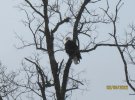Ah, you're a photographer who happens to have a flying camera, instead of a pilot flying a drone, that happens to have a camera.Can’t understand the obsession of BVLOS.
Fly so far out you have no idea where the drone is. The scenery is no better than where you are.
I drive/ walk to where I want to photograph and keep VLOS as much as possible, not because it’s the rule as such but have no need to prove anything, I want to see the drone to position it accurately.
Personally I think it’s more of an ego thing with this need to fly high and far.
All the range tests are moot really.
I am more interested in time in air to take decent shots and sitting at home planning missions on Litchi or Dronelink.
Different mission objectives.
I always know where my drone is. I just don't rely only on vision to do that. Instrument pilot vs VFR pilot.
My canyon continues to offer places to look where I haven't been yet. I just have to go a bit farther out to see them. The view when I first peaked over the rim of the other side of the canyon was just spectacular.
When I'm flying the drone, I'm either riding the drone, or being the drone, depending on how science fiction-y I'm feeling at the moment. For me, it's not just a camera drone; it's an aircraft that I can fly to cool places and see cool stuff, just like I've done for 40 years with fixed wing planes.
Drones are just indescribably cheaper than regular fixed wing aircraft!
For me, drones are a way for me to fly.
Thx,
TCS










